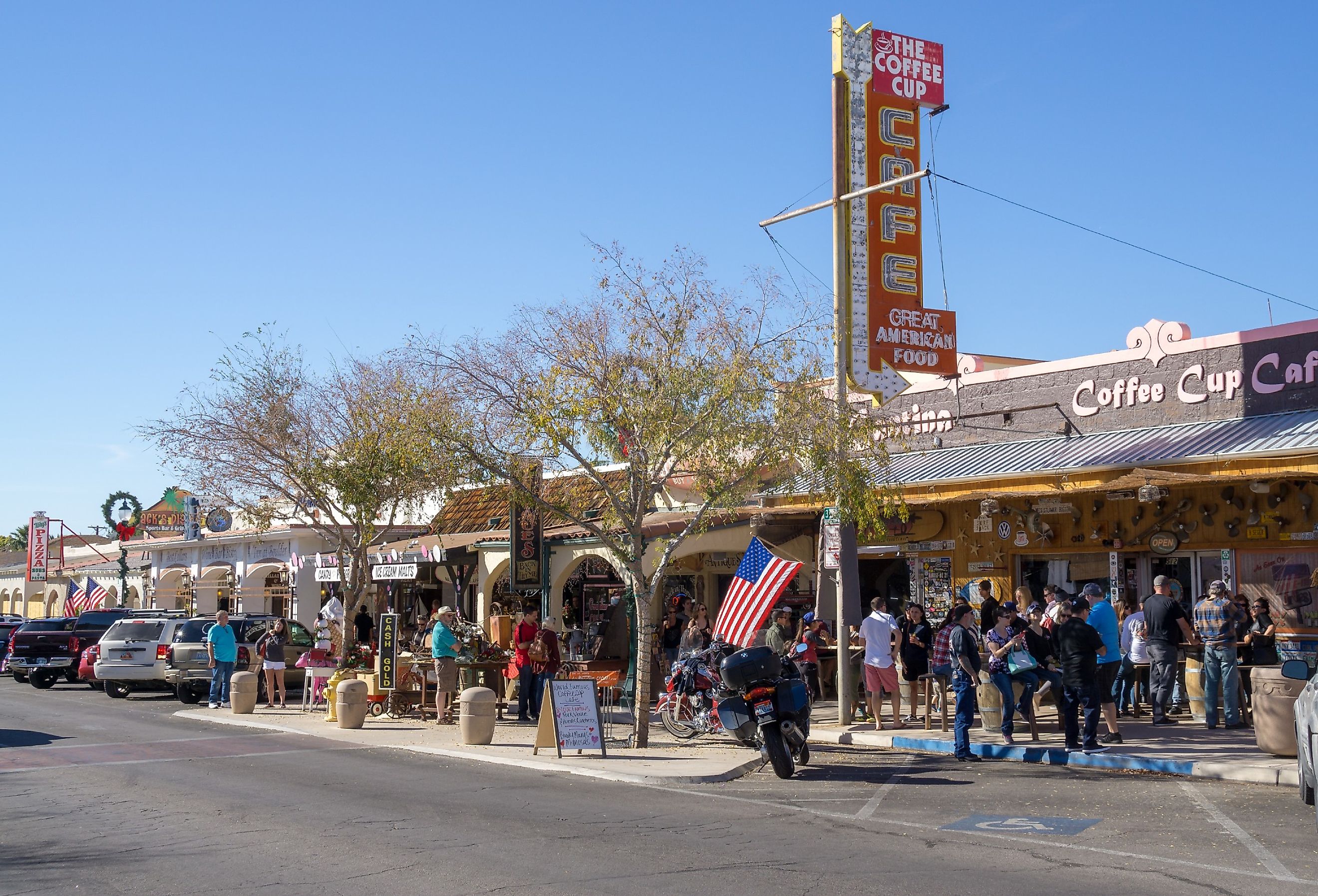
8 Delightful Towns to Visit in Nevada
Nevada, a state often associated with its gambling cities, like Las Vegas, and expansive deserts like the Mojave, is also home to a collection of small towns. These towns, each with their unique stories and landscapes, have diverse heritage and environments that characterize the Silver State. From the meticulously planned community of Boulder City to the historic mining town of Virginia City, these eight towns are the most delightful to visit.
Boulder City
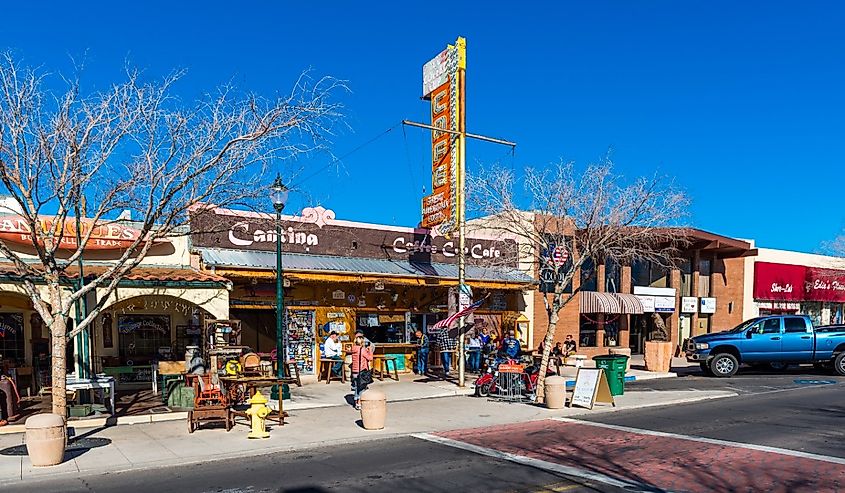
Boulder City was established in 1931 as a base for workers constructing the Hoover Dam, a project that was instrumental in the economic development of the American Southwest during the Great Depression. This town was meticulously planned and built by the federal government to house the dam's construction workers and their families. Its creation brought an influx of laborers and their families, resulting in a community that thrived amidst the desert landscape. Today, Boulder City remains one of the few places in Nevada where gambling is prohibited, preserving its original character.
Visitors can explore the impressive Hoover Dam, a feat of engineering that offers guided tours and panoramic views of the Colorado River. The nearby Lake Mead National Recreation Area provides opportunities for boating, fishing, and hiking amidst diverse desert landscapes. Hemenway Park is another must-see, where guests can enjoy views of the surrounding mountains and often spot bighorn sheep grazing nearby.
Elko
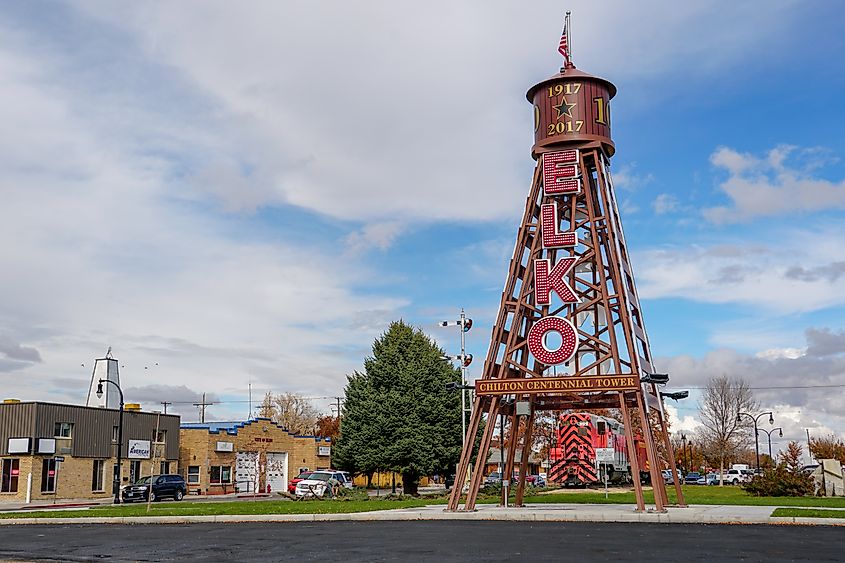
Elko, founded in 1868, is a significant town in Nevada's northeastern region, rooted in the mining and railroad industries. The town blossomed during the westward expansion as a key stop along the Central Pacific Railroad. Elko is also recognized for its rich cowboy culture and annual National Cowboy Poetry Gathering, which celebrates the region's Western heritage and arts. The nearby Ruby Mountains, often called the "Swiss Alps of Nevada," add to the town's natural setting—a contrast to the desert surrounding it.
Guests can drive through the Lamoille Canyon Scenic Byway to experience views and numerous hiking trails in the Ruby Mountains. The Northeastern Nevada Museum features exhibits on local history, wildlife, and art. It is a comprehensive look into the region's past and present. The California Trail Interpretive Center has interactive exhibits and trails that highlight the historic journey of pioneers heading west.
Fernley

Fernley, established in the early 20th century as an agricultural and ranching community, has grown into a town located at the intersection of major highways. The construction of the Truckee Canal in 1905 was pivotal for Fernley's development, enabling irrigation and transforming the area into fertile farmland. Despite its growth, Fernley retains a small-town feel and has access to several natural attractions that highlight Nevada's landscapes.
Visitors can explore the Fernley Wildlife Management Area, which has bird watching and nature trails in a wetland environment. Pyramid Lake, a large desert lake known for its fishing opportunities and tufa rock formations, is another notable destination.
Gardnerville
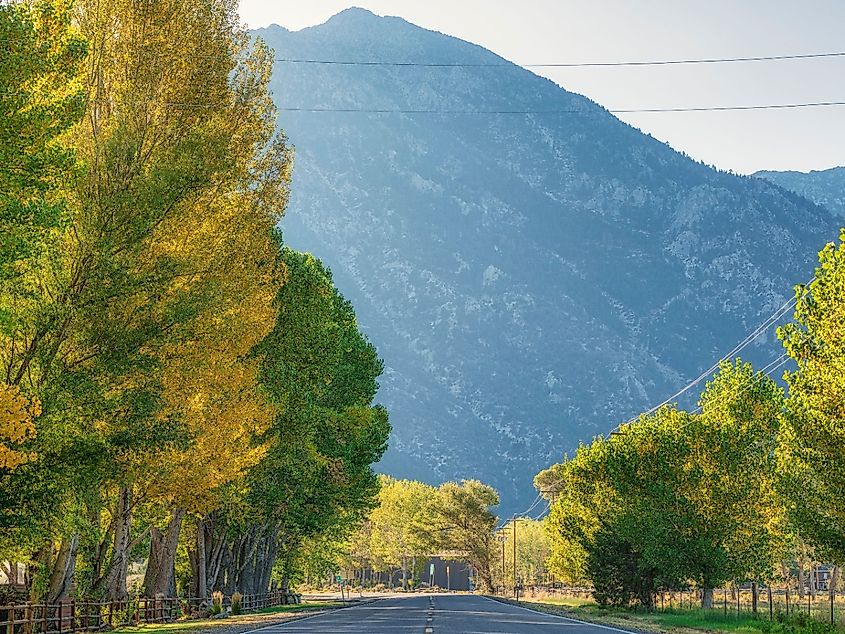
Gardnerville, founded in 1879, is nestled in the Carson Valley. Initially established by Danish immigrants, the town quickly became a hub for agriculture and ranching, benefiting from its fertile land and location along the Emigrant Trail.
Visitors can explore the Dangberg Home Ranch Historic Park to learn about pioneer life through guided tours and exhibits. Lampe Park, a community park, has walking trails, sports facilities, and a pond; it's an ideal spot for relaxation and recreation. Just down the road, Genoa Bar, known as Nevada's oldest thirst parlor, looks into the area's historic past and is a different experience for visitors.
Ely
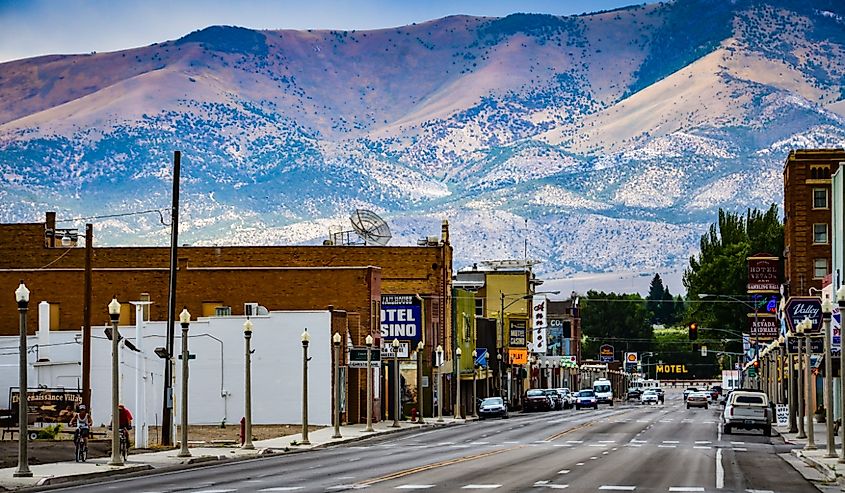
Ely, established in the late 19th century as a stagecoach stop and later as a mining town, experienced significant growth with the discovery of copper. The arrival of the Nevada Northern Railway in 1906 further spurred its development, leading Ely to become a bustling hub for mining operations.
Guests can visit the Nevada Northern Railway Museum, for historic train rides and exhibits on the town's railway history. Garnet Hill, a popular spot for garnet hunting, provides scenic views and a unique opportunity to collect garnets. The Ward Charcoal Ovens State Historic Park features preserved beehive-shaped charcoal ovens from the late 19th century, offering insight into the region's mining history.
Virginia City
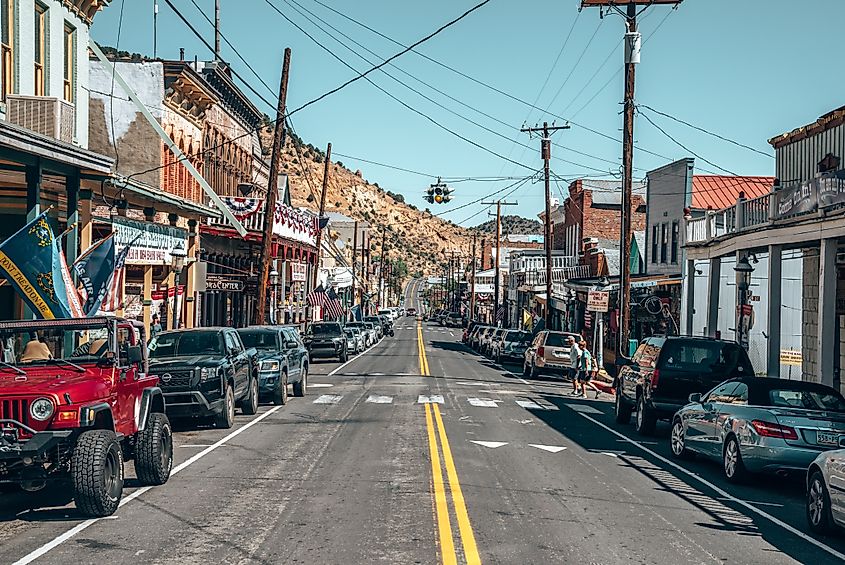
Virginia City, founded in 1859 following the discovery of the Comstock Lode, became one of the most significant mining towns in Nevada. The immense wealth generated by the silver mines led to rapid development, with Virginia City becoming a center of commerce and culture during the 19th century. The town's historic buildings and landmarks reflect its rich mining heritage and the boomtown atmosphere that characterized its early years.
Visitors can explore the Comstock Gold Mill, the historic silver mine that played a crucial role in the town's development. The Virginia & Truckee Railroad has historic train rides with scenic views for those wanting a glimpse into the past. The Silver Terrace Cemeteries, with their gravestones and stories of early settlers, are a poignant reminder of the town's history.
Pahrump
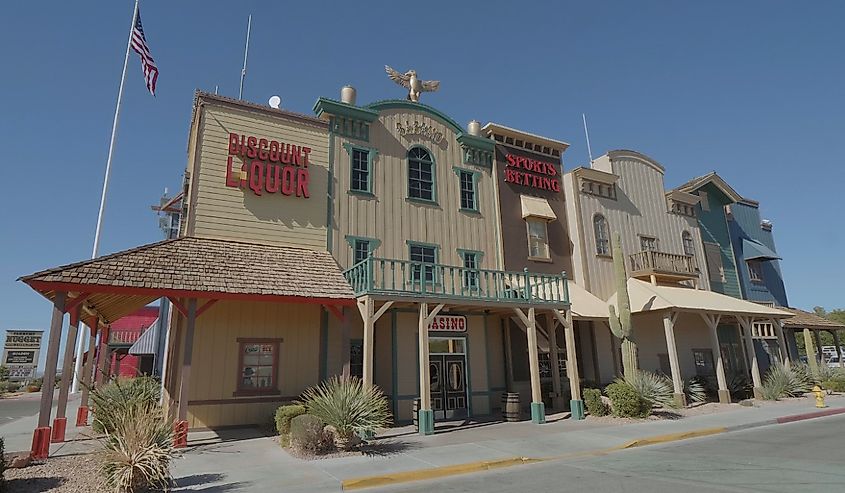
Pahrump, initially a farming community, is located in the Mojave Desert and has grown significantly over the past few decades. The town's development was influenced by its proximity to Las Vegas and its location for agriculture, particularly alfalfa and cotton farming. Today, Pahrump is known for its vineyards and relaxed desert lifestyle.
Visitors can tour the Pahrump Valley Winery, which offers tastings and views of the vineyards. The Spring Mountain Motor Resort and Country Club provides motorsport enthusiasts with racing experiences and events. At Ash Meadows National Wildlife Refuge, guests can observe desert wildlife and rare plants while exploring the diverse ecosystems of the Mojave Desert.
Laughlin
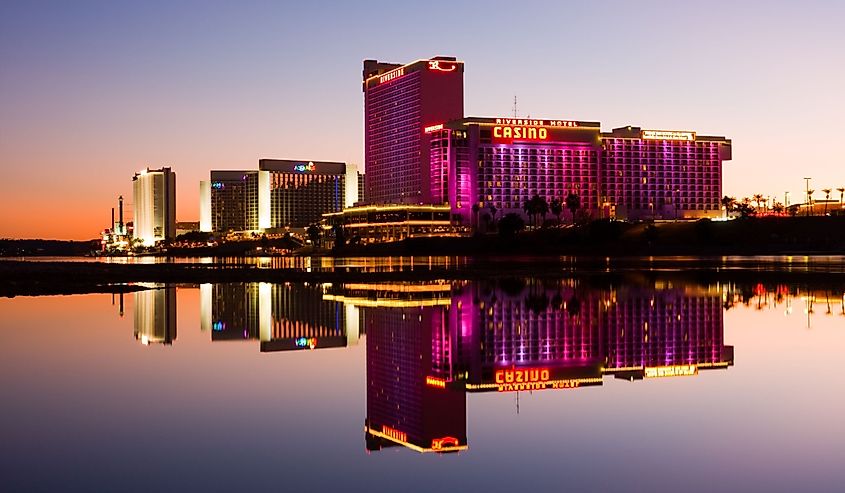
Laughlin, situated along the Colorado River, was established in the 1940s and developed into a resort destination in the 1960s. The town's growth was largely driven by its casinos and entertainment venues, which attracted visitors seeking leisure and recreation. Laughlin's location along the river further provides a scenic backdrop and numerous opportunities for outdoor activities.
Guests can enjoy a walk along the Laughlin Riverwalk, which offers views of the casinos and the Colorado River. The Colorado River Heritage Greenway Park and Trails present hiking, biking, and equestrian trails along the river. Grapevine Canyon, known for its petroglyphs, is a unique opportunity to explore ancient rock art and the surrounding desert scenery.
Exploring Nevada's delightful small towns reveals a tapestry of history and natural beauty that is often overshadowed by the state's more famous destinations. Boulder City's connection to the Hoover Dam, Elko's cowboy culture and scenic Ruby Mountains, and Fernley's agricultural roots all offer unique perspectives on the state's development. Meanwhile, Gardnerville, Ely, Virginia City, Pahrump, and Laughlin each present their own blend of historical significance and natural beauty, from historic parks and museums to wildlife refuges and scenic byways. These delightful eight towns not only highlight Nevada's rich past but also provide a variety of activities for visitors to enjoy, ensuring that the state's lesser-known locales are both educational and engaging.











